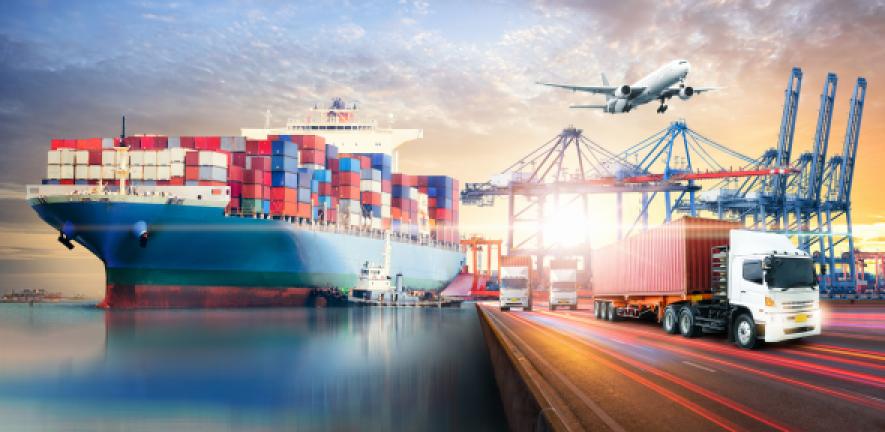
Submitted by cmb231 on 4th August 2022
This three-day virtual study group run by V-KEMS aimed to bring mathematical scientists and other disciplines together to solve end user defined challenges with the aim of mitigating the impact of COVID-19, climate change and the change of regulations on the shipping and supply chain network.
A report has been published below, which highlights the discussions that took place at the Study Group and the initial findings.
Background
Increased border restrictions, a reduction in the availability of workers and the increased demand for home delivery over the past 2 years has meant that the freight transport network has had to drastically adapt its operations. The consequent impact on the supply chain has been substantial, and can be observed by simply looking at supermarket shelves. Various stages of the shipping and supply chain network have had to deal with the effects of COVID-19, climate change and the change of regulations.
This event was delivered virtually as part of a Programme of activity by V-KEMS.
Aims and Objectives
The aim of this event was to bring together those working in mathematical modelling, statistics, operations research, logistics and supply chain management and other disciplines together to solve end user defined challenges in transport logistics.
The following challenges were presented to the study group:
1. Trustworthiness at the border, presented by Mike Brookbanks – Independent Consultant & Visiting Fellow at University of Surrey
2. Delivering Shore Power, presented by Alex Pepper– Senior Policy Lead - ESG at UK Major Ports Group (UKMPG)
A detailed outline of the problems presented can be found here:

